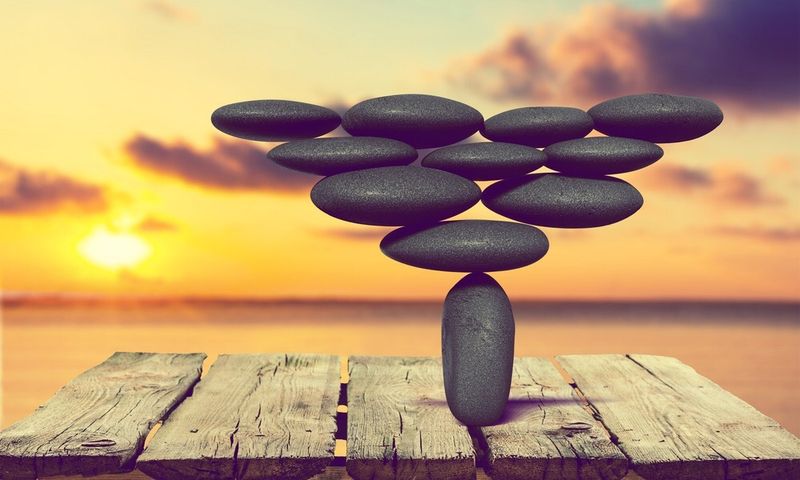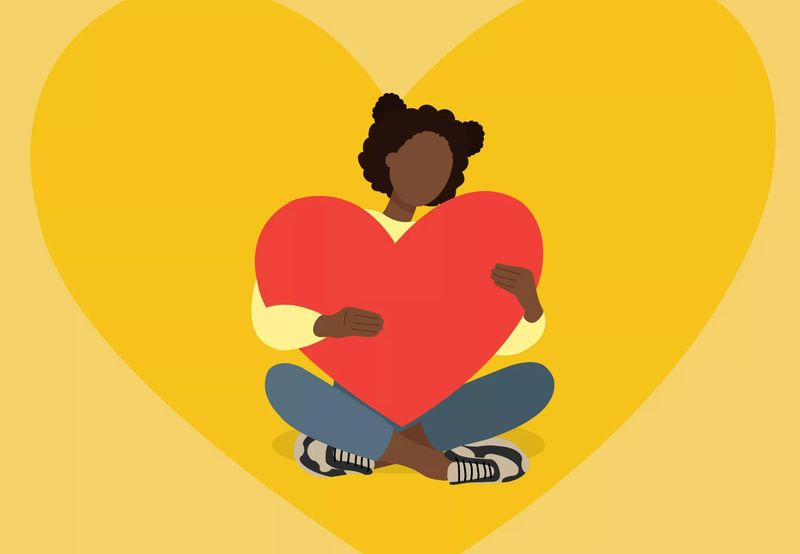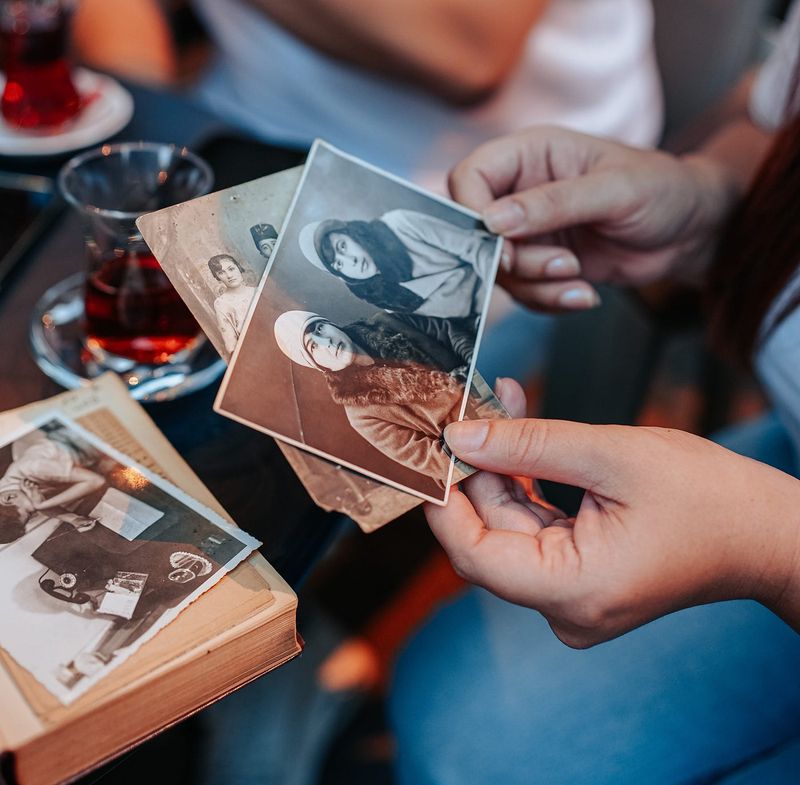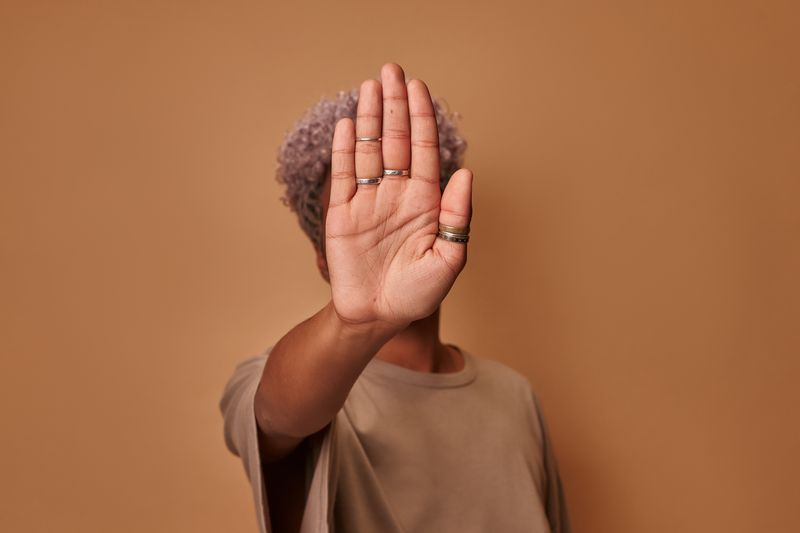20 Life Lessons I Wish I’d Learned In My 20s

In our 20s, we often think we have all the time in the world, only to realize later the value of wisdom learned through experience.
Here are 20 life lessons I wish I’d learned earlier, each offering a gentle yet profound truth about navigating life with grace and understanding. Reflecting on these insights might inspire a deeper appreciation for the journey and the lessons it brings along the way.
1. Not everyone needs access to your whole story

In a world where sharing details of our lives online is common, remembering that not everyone deserves access to our full narrative is crucial. Some chapters are best kept private, reserved for those who truly respect and understand us. One’s history is a treasure, not a public domain. By setting boundaries, we protect our personal sanctuaries and maintain control over our stories.
Choosing carefully who gets to know our deepest experiences allows us to cultivate genuine relationships based on trust and respect. This discretion not only safeguards our well-being but also strengthens the bonds with those we truly value. Letting selective intimacy guide us can lead to more meaningful connections and a healthier relationship with our own identity.
2. “No” is a full sentence, and it’s more than enough

Saying ‘no’ is a skill that many struggle to master, yet it’s a powerful tool in asserting our personal boundaries. In our 20s, we often feel the pressure to please others, sometimes at the expense of our own needs. Learning to say ‘no’ without guilt can be liberating.
This small word is complete in its simplicity, offering us the freedom to prioritize our time and energy. Understanding that ‘no’ is not a rejection of others but a protection of self is key. It allows us to focus on what truly matters, ensuring that our commitments align with our values and goals. Embracing ‘no’ as a complete sentence can empower us to make choices that foster personal growth.
3. Your job isn’t your identity

The pressure to define ourselves by our careers often overshadows the essence of who we are. In our 20s, it’s easy to equate success with job titles, losing sight of the richness of life beyond the workplace. Remember that your value doesn’t hinge on your professional achievements.
Balance is crucial. While careers are significant, they should complement, not consume, our identities. Exploring passions and nurturing relationships outside of work enriches our lives, providing a sense of fulfillment that a job alone cannot offer.
Understanding that we are more than our occupations allows us to live more authentically, embracing a life that reflects our true selves rather than a predefined role.
4. Pay attention to how people respond to your boundaries

Observing how others react to your boundaries reveals much about their respect for you. In our 20s, we may hesitate to set limits, fearing confrontation or rejection. However, recognizing boundary violations is essential to nurturing healthy relationships.
Those who truly care will respect and honor your limits, while those who don’t might attempt to guilt or manipulate you. This reaction is a clear indicator of their genuine intentions.
Learning to communicate boundaries firmly yet kindly fosters mutual respect and understanding. It empowers us to establish relationships grounded in equality and kindness, promoting an environment where both parties feel valued and heard.
5. Being busy isn’t the same as being successful

Busyness often masquerades as success, but the two are not synonymous. In our 20s, we might confuse a hectic schedule for achievement, chasing tasks rather than purpose. True success lies in aligning actions with values, creating a fulfilling and balanced life.
Recognizing the difference between productivity and mere activity can transform how we approach our goals. It’s about working smarter, not harder, and prioritizing what truly matters. Taking time to breathe and reflect is not a luxury, but a necessity.
By focusing on meaningful pursuits rather than endless tasks, we align with our authentic paths, achieving a deeper sense of accomplishment and well-being.
6. Some friends are only meant for one season

Friendships ebb and flow, each serving a purpose in our life’s journey. In our 20s, it’s vital to recognize that some connections are not meant to last forever. Cherishing the lessons and joy they brought is essential, even as paths diverge.
Understanding the temporary nature of some friendships allows us to appreciate them without clinging. It’s about valuing the moments shared, without regret for their end.
This acceptance frees us to embrace new relationships and experiences, confident that each has its time and place in our unfolding story. Letting go with grace honors the beauty of what was and opens space for what is to come.
7. Take rest seriously before your body forces it

Rest is not a reward but a fundamental need that often goes neglected in our 20s. We might push our limits, forgetting that our bodies require downtime to rejuvenate. Ignoring this need can lead to burnout, forcing a pause we didn’t choose.
Prioritizing rest is an act of self-care and respect. It’s about listening to our bodies and allowing them the space to recover and thrive. Taking breaks can enhance productivity and creativity, making rest an investment in our well-being.
By embracing rest as a vital component of health, we ensure that our energy is sustainable for the long haul, fostering a balanced and vibrant life.
8. Apologies without changed behavior mean nothing

Words can be powerful, but without actions, they often fall flat. In our 20s, we may believe that saying ‘sorry’ is enough to mend our mistakes. However, true apologies require more than words; they demand change.
Understanding the impact of our actions and committing to do better is where genuine growth happens. A heartfelt apology is a starting point, but it’s the follow-through that rebuilds trust.
When apologies are accompanied by sincere efforts to alter behavior, they pave the way for healing and stronger relationships. This commitment to change transforms mistakes into opportunities for learning and connection.
9. Don’t wait to be chosen—choose yourself first

In a world that often emphasizes external validation, choosing oneself can be a radical act of self-love. In our 20s, waiting for others to recognize our worth might lead to missed opportunities and self-doubt.
By choosing ourselves first, we assert our value and open doors to possibilities aligned with our true desires. It’s about trusting our instincts and making decisions that honor our uniqueness.
Embracing self-selection empowers us to pursue paths that resonate with our authentic selves, leading to a more fulfilling and self-directed life. This choice is the foundation of confidence and resilience, paving the way for true happiness.
10. Emotional intelligence will get you further than charm

While charm can open doors, it’s emotional intelligence that keeps them open. In our 20s, honing the ability to understand and manage emotions can be far more valuable than superficial allure.
Emotional intelligence helps navigate complex social landscapes with empathy and insight. It fosters strong relationships, effective communication, and thoughtful decision-making.
By prioritizing emotional growth, we lay the groundwork for personal and professional success. This deeper understanding of ourselves and others creates connections that are both meaningful and enduring, offering a richer, more satisfying journey.
11. You don’t owe anyone access just because they’re persistent

Persistence doesn’t entitle anyone to access our lives or hearts. In our 20s, we may feel pressure to yield to constant demands for attention, confusing persistence with genuine interest.
Understanding our right to set boundaries protects our emotional and mental well-being. Just because someone continually knocks doesn’t mean we have to open the door.
By maintaining firm yet compassionate boundaries, we assert our autonomy and ensure that our energy and time are spent on relationships that truly matter. This discernment fosters healthier interactions and empowers us to live authentically, honoring our needs first.
12. Stability can be more freeing than chaos

Amid life’s unpredictability, choosing stability can provide a sense of freedom that chaos cannot offer. In our 20s, excitement often seems synonymous with a whirlwind lifestyle, yet stability can be the true liberator.
Creating a stable foundation allows us to explore passions and take risks from a secure place. It provides the peace of mind to pursue dreams without the distraction of constant turmoil.
Embracing stability doesn’t mean settling; it means finding balance. It’s a conscious choice to nurture an environment where creativity and growth can flourish unimpeded by chaos, offering a sanctuary for the soul.
13. Talk to yourself like you talk to someone you love

The inner dialogue we maintain deeply influences our self-esteem and outlook on life. In our 20s, we might be our harshest critics, forgetting to extend the kindness we readily offer others.
Cultivating a loving conversation with ourselves is crucial for mental well-being. It involves recognizing our strengths and forgiving our flaws, understanding that self-love is an ongoing journey.
By treating ourselves with the same compassion and respect we show loved ones, we foster a positive self-image and resilience. This practice of self-kindness becomes the cornerstone of a healthy, balanced life, nurturing our inner peace.
14. Stop assuming people know how to treat you

Expecting others to instinctively know how to treat us often leads to disappointment. In our 20s, learning to articulate our needs and boundaries is essential for fostering healthy relationships.
Clear communication removes the guesswork, ensuring that others understand our expectations. It’s about expressing what respect and consideration look like for us.
By proactively setting the standards for how we wish to be treated, we empower ourselves and cultivate relationships based on mutual understanding and respect. This approach not only enriches our connections but also reinforces our self-worth.
15. Time doesn’t heal everything—doing the work does

The adage that time heals all wounds often overlooks the necessity of active healing. In our 20s, understanding that growth requires conscious effort can lead to profound transformation.
Time provides the space for reflection, but it’s the intentional work—self-reflection, therapy, and embracing change—that truly mends the hurt.
By engaging in this healing process, we transform our experiences into lessons and resilience. It’s about facing the discomfort, acknowledging feelings, and gradually building a future unburdened by past pain. This proactive approach paves the way for authentic healing and personal growth.
16. It’s okay to outgrow people, places, and patterns

Growth often means leaving behind what no longer serves us. In our 20s, realizing that it’s natural to outgrow certain people, environments, and habits is vital for personal development.
Outgrowing doesn’t mean forgetting; it means evolving into new phases of life that better align with who we are becoming. It’s about embracing change without guilt.
This acceptance allows us to pursue paths that resonate with our current values and aspirations, fostering a life rich with purpose and fulfillment. Letting go with grace opens the door to new opportunities and a brighter future.
17. You can love someone and still need distance

Love and distance are not mutually exclusive. In our 20s, understanding that needing space doesn’t diminish our affection for someone is a crucial lesson.
Sometimes, distance is necessary for self-preservation and clarity. It allows us to maintain our individuality while nurturing the connection from afar.
By embracing this balance, we honor both our needs and the relationship, fostering a healthier dynamic. It’s about recognizing that love can coexist with boundaries, offering a deeper connection grounded in mutual respect and understanding.
18. Most big changes don’t feel like big moments—they sneak up

Life’s significant changes often unfold subtly, without fanfare. In our 20s, realizing that transformation rarely arrives with grand announcements helps us remain open to the possibilities.
These moments often blend seamlessly into the fabric of daily life, revealing their importance only in hindsight. By staying present and aware, we can embrace these changes with grace.
Acknowledging that growth is a continuous journey allows us to navigate shifts with confidence and curiosity, welcoming new experiences as they come. It’s about cherishing the small steps that collectively lead to profound evolution.
19. Learn to sit with discomfort; it’s a better teacher than ease

Discomfort often holds the key to our most profound lessons. In our 20s, realizing that avoiding discomfort limits growth is an essential insight.
Sitting with discomfort teaches resilience, patience, and self-awareness. It pushes us beyond our comfort zones, leading to personal and emotional development.
By welcoming discomfort as a teacher, we open ourselves to transformation and deeper understanding. It’s about courageously facing our fears and uncertainties, allowing them to guide us toward a more authentic, empowered life.
20. Your peace is worth protecting—even if it makes others uncomfortable

Personal peace is invaluable and worth preserving, even if it means others might not understand. In our 20s, prioritizing peace over placating others can feel challenging yet liberating.
Protecting our peace involves setting boundaries and making choices that honor our mental and emotional well-being. It’s about recognizing that our tranquility is not negotiable.
By valuing our peace, we ensure that our life decisions align with our true selves, fostering a harmonious existence. This commitment to inner calm empowers us to navigate life with confidence and authenticity, regardless of external pressures.
